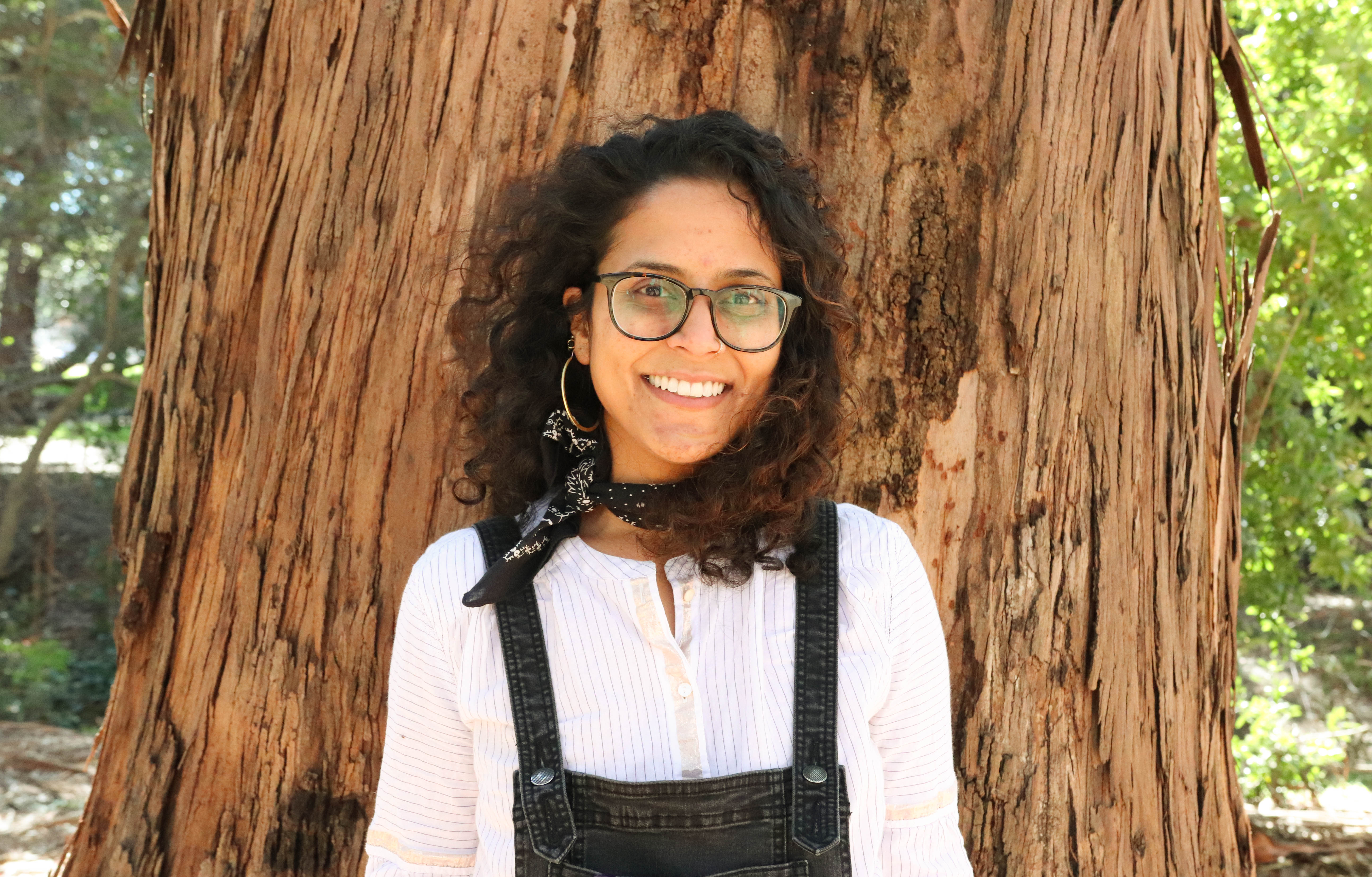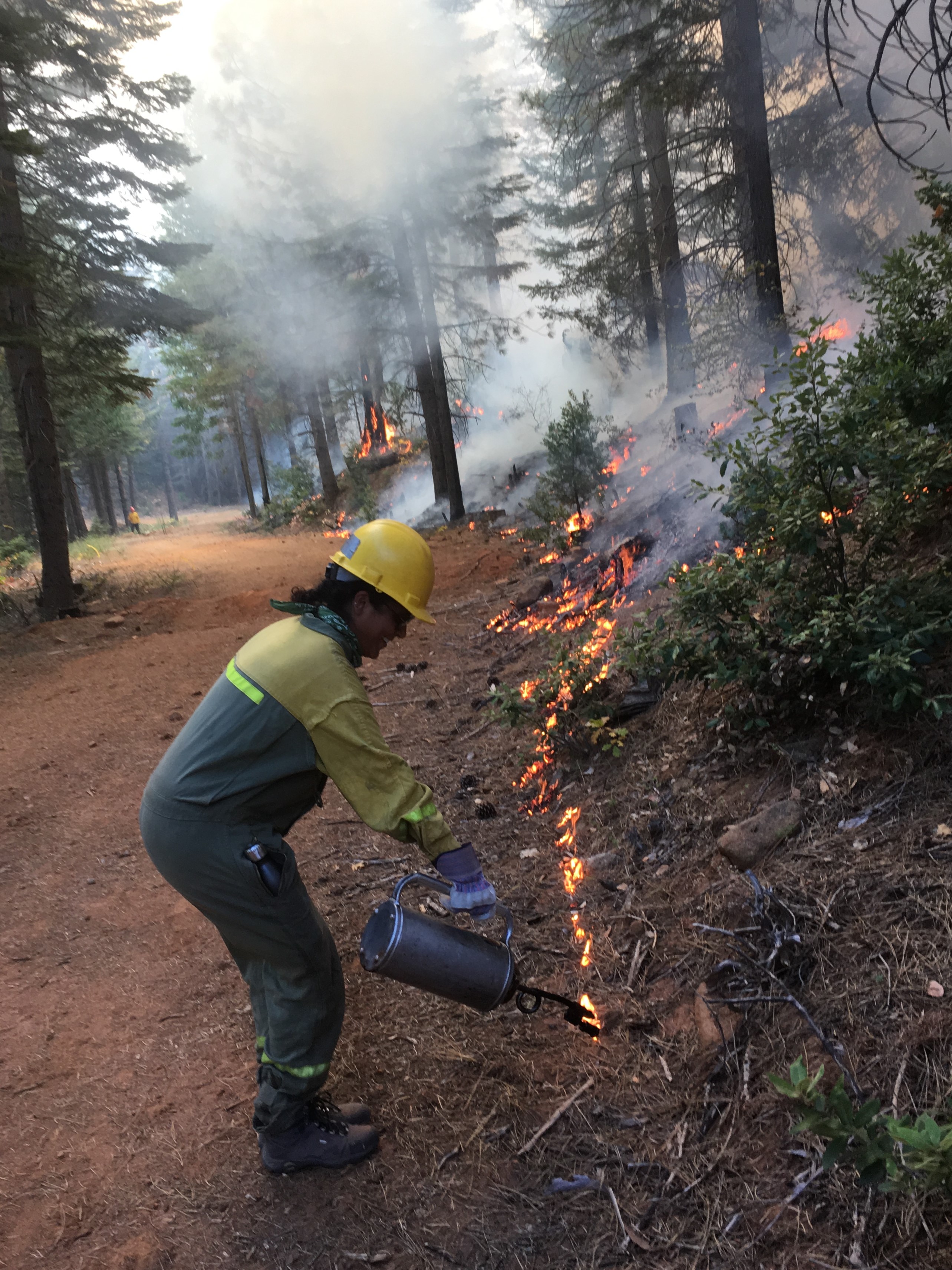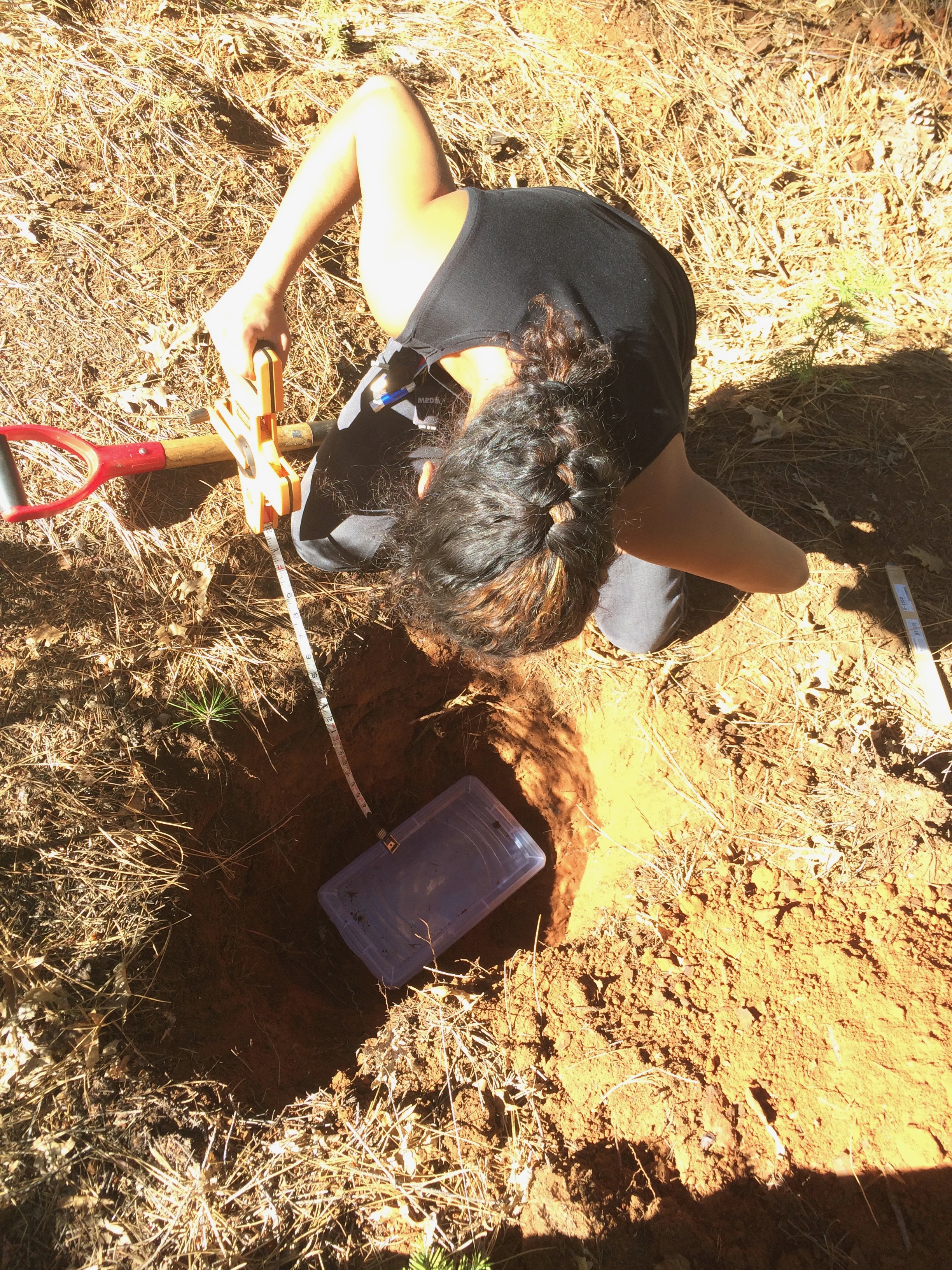3rd year PhD candidate in Microbial Biology
In this month’s Student Spotlight, graduate student Neem Patel tells us about setting forest fires, the importance of community in science, and her hope to have a career in an environmentally-focused industry.

What’s the focus of your doctoral research?
As a PhD candidate in Matthew Traxler’s Lab in the Department of Plant and Microbial Biology, I am interested in uncovering novel bacterial metabolisms, or metabolic potentials that could reveal new chemical compounds or novel substances relevant in post-fire soil environments. My overall focus is understanding post-fire soil chemistry, microbial community succession and dynamics, and how these communities affect the post-fire chemistry to restore soil health.
How did you end up in this field?
I completed my undergraduate studies at Georgia State University in Atlanta, where I double majored in Italian studies and biology with a minor in chemistry. Upon graduation, I became a staff scientist in a meiosis lab at New York University. I worked there for five years and although I love genetics and molecular biology, I was beginning to feel frustrated with the fact that my work was largely inaccessible to people who didn’t study science.
I began reflecting on what scientific research meant to me, what kind of scientist I wanted to become, and the steps that could advance my professional development in meaningful ways. I wanted to marry my scientific training with my passion-driven activism work toward raising awareness about ecosystem stability and our global environmental health. Thinking back to my experience studying bacteria in a microbial ecology lab during my undergrad years, I recalled the appreciation and joy I felt from that work and decided to apply to graduate programs in microbial biology. I feel that I can do environmentally significant research through my PhD in this field.
What has been one of your favorite experiences during graduate school?
The field work I’ve conducted as part of my current research project has been really rewarding for me, mostly because I’ve been able to set forests on fire! I do prescribed burning at the Blodgett Forest Research Station located in the Sierras, and we study how the microbial communities—both bacteria and fungi—in soil recover after controlled burning over the course of the year. We measure the pH and chemistry of the soil before and after the fire, and study how succession of the microbes in the environmental recovery in the coming months alters the chemistry in the long term.

The day-to-day reality of this research project involves setting things on fire and then collecting dirt! We do community genomic sequencing to attempt to identify the specific species of bacteria and fungi present in the soil, and we also do chemical extractions.
The work is also interdisciplinary in nature, which I value. I enjoy interacting with researchers who are investigating other aspects of biological fire, such as microbiologists studying how fire moves through a system such as a tree or a plant. We also get to collaborate with Cal firefighters when we’re burning the forest, as they teach us really important safety techniques to control the burn. It has been fascinating to talk to so many different people and hear their perspectives on how fire affects an entire ecosystem.
The day-to-day reality of this research project involves setting things on fire and then collecting dirt! We do community genomic sequencing to attempt to identify the specific species of bacteria and fungi present in the soil, and we also do chemical extractions.
The work is also interdisciplinary in nature, which I value. I enjoy interacting with researchers who are investigating other aspects of biological fire, such as microbiologists studying how fire moves through a system such as a tree or a plant. We also get to collaborate with Cal firefighters when we’re burning the forest, as they teach us really important safety techniques to control the burn. It has been fascinating to talk to so many different people and hear their perspectives on how fire affects an entire ecosystem.

What positions do you hold outside of your laboratory work?
I believe it’s important to be engaged in our community outside of the scientific work we do. Science is a social activity, and I think that we should all be mentoring the next generation of scientists and creating a more inclusive climate for the folks already here. There is no science without community.
Currently, I am a mentor with NYAS NeXXt Scholar Program, a peer mentor in my department, and a Graduate Assembly delegate, which is our autonomous student government, for the Graduate Group in Microbiology. I also am a member and organizer on the Diversity, Equity, and Inclusion committee with the UAW student workers union at UC Berkeley, and am slated to take over the project director role for an environmental sustainability conference that graduate students organize annually, called the Earth Action Initiative. This conference features a combination of workshops and climate-themed art to get the community inspired and active in climate justice-related decisions.
How do you plan to use the skills and experience you've gained at Berkeley in your career?
I hope to work in the emerging biotechnology industry or perhaps even start my own company. I would love a job in bioremediation, synthetic biology, or biofuels, or a company that is oriented toward bettering the environment through biology. A dream position would be working as a lead scientist for a company or organization where I have some measure of creative control over my projects.
Do you know of a student or group in Rausser College involved in noteworthy research, community outreach, or extracurricular activities? Let us know by submitting a suggestion with this nomination form.
